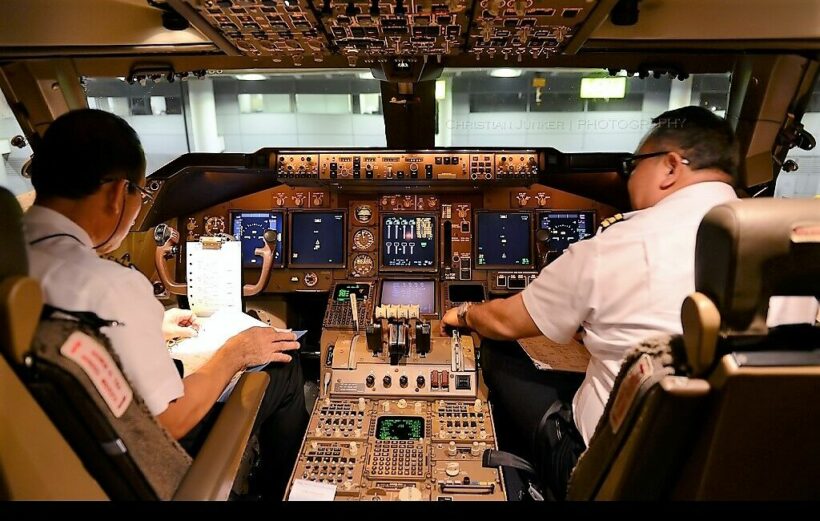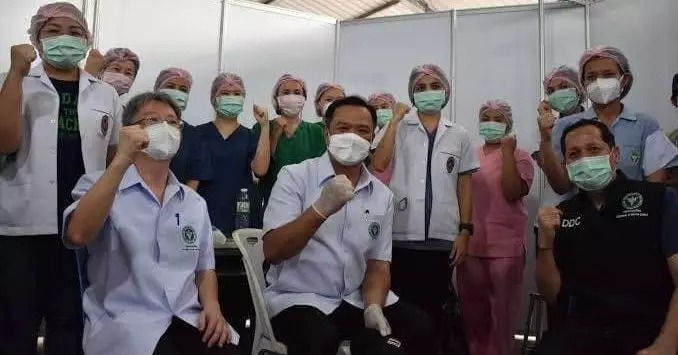
Thailand is moving forward with a proposal to open Thailand to selected foreign tourists later this Summer, hoping to get a head start on bringing back foreign tourism from other countries and popular destinations, such as Bali.
However, the proposal (and it is still a proposal and not set in stonedespite some reports to the contrary, and will be dependent on many factors including getting enough people vaccinated in time and the Covid-19 situation around Thailand) leaves many unanswered questions that authorities have not quite come forward on yet.
I wanted to take some time to list those questions and some general thoughts around them. We don't have all the answers yet and many of these questions have not even been addressed officially by the Thai government at this point. These are questions, however, that bear come consideration and thought as Thailand moves forward to bringing back foreign tourists. Nearly nobody denies the urgency, after one year, of finding a way to move forward with bringing back international tourism. That being said, the path to do so, and the timeframe (especially with many foreign countries having their own quarantines or bringing back lockdowns) is a topic of wide debate.
Let's look at some of the unanswered questions. This is an opinion article, so is more just a general mindset and thought around questions that have come up versus concrete plans or things set in stone. It's likely a lot of this will become more clear over the next several months but these are some things for Thailand to consider:
Q. What effect will this have on domestic tourism?
A. Big question here. There are still many (although substantially less than last year) afraid of Covid-19 and domestic Thai tourists may avoid destinations where a "sandbox" trial is taking place. Pattaya City business owners who primarily serve Thai nationals have already expressed concern with Pattaya becoming a sandbox, although Phuket would be first. Phuket and Koh Samui, of course, primarily rely on international tourism and any hit of domestic tourism would likely be minimal. It would be substantially more, however, in Chiang Mai or Pattaya. This concern is also why Hua Hin and Bangkok are not on the current list for any "sandbox test".
Q. What exactly will people be allowed and not allowed to do for their first 7-10 days when let in on sandbox?
A. This is another big unanswered question. Officials have stated that although selected vaccinated tourists (we use this wordage carefully as it won't be everyone, as some countries will likely be excluded) will be allowed in without quarantine, their first 7 (some reports have said 10) days will be under a "safe and sealed" style visit, with selected places to go and not true freedom. This brings up a bunch of sub-questions also. Will this be a tour guide-style group like seen with many Chinese visitors previously? Will people have guides and be in smaller groups? Will people have the freedom to go to where they wish with a tracking application but only be allowed to go to places on the list? What sort of places will they be allowed to visit? Could people bring "guests" back to their hotel with them? All things to consider. After 7-10 days people would be allowed to travel freely, it appears, based on the information given from multiple government sources, but the first week or so is unclear of what exactly happens.

Q. How intrusive will the tracking application be?
A. The government has made it clear people will be tracked during this program, although the level of tracking will likely de-escalate as the Covid-19 situation improves over time. Many Western tourists are not fans of over intrusive tracking. Will applications be more based around check-in or check-out like the current applications used for Thai nationals or will they be all-inclusive GPS trackers? If someone doesn't have a smartphone, will they be forced to purchase one or wear a smart band (So far, these seem to have mostly been limited to testing and yacht quarantine.)? How long will people have to use these applications? Can they suspend them after the first 7-10 days or will they need them for their entire trip? All things to consider.
Q. What about kids?
A. It's quite clear that although work is being done around research for vaccinating children, it isn't complete yet and currently children aren't getting vaccines. This means that by the time Phuket is planned to open, it leaves a big question. Family visitors, especially from Russia, China, and India, are common…will this mean kids cannot come? Or will they be able to come with several negative Covid-19 tests? Not allowing children would be a substantial roadblock for many tourists. That brings us to our next question.
Q. Will it truly be just vaccinated tourists with no quarantine or will they allow people in with just several negative Covid-19 tests?
A. There has been ample talk about eventually lifting all restrictions and letting in basically anyone sometime in 2022, and in October loosening restrictions around vaccinated people only…but all of this is talk. Vaccine passports are a hot topic around the world, and even if the Thai Government decides to let in non-vaccinated people with negative Covid-19 tests it is possible airlines may not. For now, the initial proposal would be vaccinated tourists, but as many countries cannot yet get a vaccine this would limit those who could come.
Q. What about the length of time for having a vaccine and who could come?
A. Another factor. Currently, there is a three-month cut-off for reduced quarantine of seven days for being fully vaccinated. Of course, ample research is ongoing on how long vaccines last but if this three-month window stays many people in Western countries being vaccinated now would, in theory, need to be vaccinated AGAIN to come to Thailand. Something for authorities to consider.

Q. What about Thais, ex-pats, etc coming and going to the island during a sandbox trial? Will they need to be vaccinated or tracked?
A. So far, the answer to this is one of the biggest question marks people have had. The goal is for the island's population to be 70% vaccinated by the time the trial begins. It is quite clear Thailand is no longer going for a zero-covid or elimination style strategy and has accepted a low number of cases. By July, if Thailand's plans continue on schedule, nationwide vaccination should be rolling out on a more widespread level. By October, this should look substantially better around the country. However, if the island opens and large numbers of tourists come (and it is possible, people have been cooped up for a year and a half at this point and many want to travel.) this will bring thousands of Thai workers back to the island….will they be vaccinated before working or given the opportunity to do so? What about the time period before (and after) doses? What about leaving the island and going back to their home province and possibly carrying the virus with them? Thailand has an excellent track and trace system, we have seen it in action at The Pattaya News, but will all these people be tracked and traced as well? A lot of things to consider here.
Q. In terms of vaccines, what about foreigners?
Another big question. Officials have said time and time again that foreign residents will be vaccinated. However, it's not quite clear when that will be, how much it will cost, or what exactly Thailand considers a "resident." Currently, registration in Phuket has begun for vaccines but foreigners are not yet allowed to register and the registration is only in Thai. Multiple news sources state that this will open up "down the road" for foreigners. But, when? Although some statements from officials have said it will be free, there are mixed statements on this as well. Will foreigners be able to request their choice of vaccine as many have shown concern for some brands? How is a resident decided-will this be someone married, with kids, or a work permit? Or will retirement visas, education visas, religious or volunteer visas also be included? Or will it only be foreigners with "permanent resident" status, not one many foreigners have? Statements have been made saying that foreign workers who work in the tourism industry WILL get the vaccine, but it's still a question of when.

That's just an idea of the questions around the sandbox proposal and it would be interesting to see authorities address some of those and other concerns seen on social media. We hope you enjoyed reading this and thinking about some things that may not have been yet widely discussed around the Sandbox policy. For what it's worth, we really hope they manage to pull this off as the tourism industry and millions of Thais have struggled for over a year now. But it's not going to be as simple as opening the doors and letting people in.





















